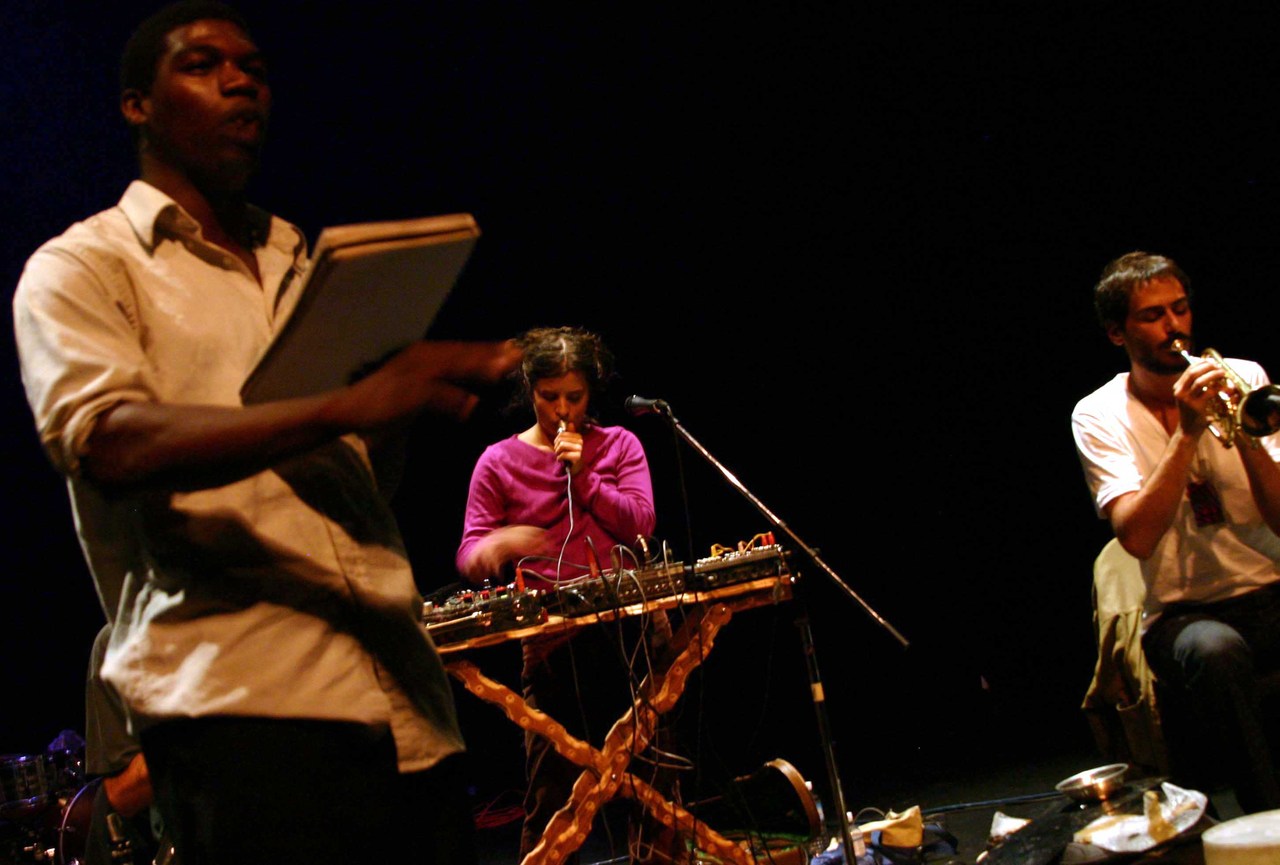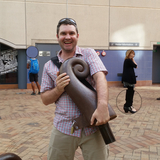
Photo credits: Stewart Mostofksy
When improvising, you have to work with failure, your own and others. If you start making music and it’s perfect to begin with, why would you continue? The only reason to keep playing is to hone the micro or macro-failures, to investigate the possibility that something that happened
could be made better / could be made different. (The difference between not-a-total-success and absolute-failure is often one of attitude; improvised music teaches the ability to sculpt that distinction for the advantage of both audience and performer, inside and outside the music.)
On the last night of the 2005
High Zero Festival in Baltimore, Maryland, I saw an extraordinary improvisation. The set was scheduled to be a quintet:
Che Davis (trombone, conch),
Mazen Kerbaj (trumpet),
Carly Ptak (mind),
Scott Rosenberg (reeds) and
Birgit Ulher (trumpet.) Before the set, however, Ptak had found a young homeless poet named
Okrah on the street. After the musicians played for a while, she motioned to Okrah from the stage and invited him to come onto it and begin reading poems out of his notebook. He did. And the musicians, seemingly dazed but tolerantly amused, continued to make music. After he read a few poems, he left the stage. The musicians continued improvising, unabated, and after a few minutes Ptak left the stage and brought Okrah back. With the musicians continuing to play, she introduced Okrah and began clapping for him. Rosenberg in particular was so miffed by this sequence that he put his instrument away, walked off the stage and refused to return. The others carried on and let the set dwindle down.
The musicians playing in this set and the organizers of the festival who put it together had some idea of what they imagined might take place. But Ptak improvised and put another element into it that changed the possibilities and expectations of the performance. Her decision to talk and clap over the music in order to recognize the homeless poet is a debatable contribution to the music. But the repercussion of her imagination to think outside the parameters of the organizers and beyond the scope of most improvisors was unequivocal: despite her local status, she was never invited to perform in the festival again.*
Ptak was failed by a silent consensus that has drawn an invisible perimeter around what is acceptable or not acceptable in improvised music. She was willing to risk total musical failure for greater aesthetic realms, the kind of realms that combine the social, the cultural, the economic, the aesthetic, the institutional, the intellectual, the scientific, the historic, the emotional, etc.
Every performance doesn’t need to go to these extremes, but the best performers make themselves deeply vulnerable and willing to go to this kind of extreme every time they step onstage. It is that willingness of the heart––to encourage and enable others’ visions for places the music might need to go––that allows the music to expand into previously unthought and impossible dimensions.
Paradoxically, the more risk of failure you take on, the less possibility it has of occurring. Because to take on that risk means you have fully digested the notion that the difference between success and failure is really one of attitude. And if you recognize a big failure, you have just made the outlines of an even bigger success that much more tangible.



